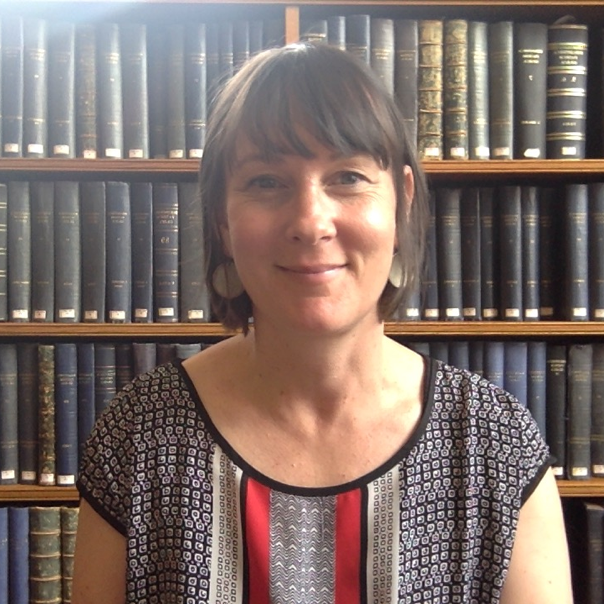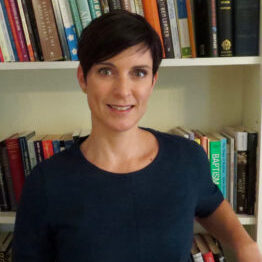Episode Transcript
[00:00:05] Speaker A: You're listening to by the well, a lectionary based podcast, preachers recorded on the land of the Wurundjeri people.
Hello, I'm Robyn Whittaker and I'm joined today by the Reverend Alastair Macrae, uniting church minister and long time friend and colleague. Welcome, El. Thanks for being with us.
[00:00:28] Speaker B: Thank you, Robyn. Great to be here. Hi, everybody.
[00:00:33] Speaker A: So, El, we're going to discuss today three of the readings for Pentecost week 17, psalm 19.
James chapter three, verses one to twelve, and mark chapter eight, verses 27 to 38, in that order.
[00:00:48] Speaker B: Okay. Do you want me to kick off with the psalm?
[00:00:51] Speaker A: Yes, take it away.
[00:00:52] Speaker B: We should do this because cs Lewis, very good commentator on psalms, called psalm 19 the greatest poem in the psalter and one of the greatest lyrics in the world.
Wow, that's a big rap.
[00:01:10] Speaker A: That's a big rap right up front. From a writer. From a good writer.
[00:01:13] Speaker B: Exactly. So I think we should at least spend a couple of minutes on it.
[00:01:16] Speaker A: Yeah.
[00:01:18] Speaker B: Commentators in the past apparently have considered this a bit of a pastiche of three different sections, but more recent interpreters see it as a coherent whole and around the root metaphor of speech.
[00:01:35] Speaker A: Oh, okay.
[00:01:36] Speaker B: Yeah.
[00:01:37] Speaker A: Which connects nicely with James.
[00:01:39] Speaker B: Exactly. So I think that's why the lectionary people made the link.
[00:01:45] Speaker A: Yep.
[00:01:45] Speaker B: In the first part, verses one to six, it's creation speech.
Creation.
[00:01:53] Speaker A: Heavens tell. Yeah.
[00:01:54] Speaker B: Heavens declare that there is a God.
The power of the creator can be known about through the unspoken speech of creation.
And then the second section is Torah's speech.
Torah meaning more instruction than law.
[00:02:14] Speaker A: Yeah, I agree.
[00:02:15] Speaker B: Do you agree with that?
[00:02:16] Speaker A: Yeah, totally.
Law is often the translation, but law, in modern western ears at least, sounds like the legal system.
[00:02:24] Speaker B: Right.
[00:02:25] Speaker A: And it's much more than that. It's instruction for life.
[00:02:27] Speaker B: Exactly, yep. And then in the third part, servant speech, which is basically prayer. Prayer to God.
So again, a bit like last week's psalm, you could reflect on the link between or.
Yeah. The. The revelatory capacity of creation.
You know, it's got limits, of course.
[00:02:51] Speaker A: Yep.
[00:02:52] Speaker B: There's only so much you can infer about God from creation. In fact, there's a lot of mixed messages.
However they are linked because God is the creator of all and God's fingerprints, presumably, over everything.
But it's the second section that, if I was preaching it, that captures my main attention.
We could. For us, we could translate to Aurora scripture, I think, the word that we can understand and hopefully follow.
[00:03:28] Speaker A: Yep.
[00:03:30] Speaker B: So there could be a preaching focus here to talk about the Bible. To talk about scripture. You're a biblical scholar.
[00:03:41] Speaker A: You're nodding. I'm nodding. You can't see me, listeners, but I am nodding and smiling in agreement.
[00:03:47] Speaker B: The Bible, you know, it's so much still part of our western culture that I think we can fail to appreciate what a gift and treasure it is. And the psalm offers poetic testimony that invites the church and the synagogue to realize the amazing resource that we have access to.
[00:04:11] Speaker A: Yes.
[00:04:12] Speaker B: And it makes those promises. The word revives the soul. It makes wise, the simple enlightens the eyes and all those wonderful things.
[00:04:20] Speaker A: Yep. No, there's a lot to play with there. I really like that idea, with the caveat that this idea that the law or the scripture is perfect. Perfect is a, you know, this is poetic language.
It's perfect for what it is. We do not need to read into that infallible, inerrant, or some of the other very rigid.
That's my caveat.
[00:04:43] Speaker B: Yeah. No, that's fair. I don't think the word carries all that baggage with it.
[00:04:47] Speaker A: No, I don't think it does.
But I love the reviving the soul part, because in an over quoted verse from two Timothy about scripture as God breathed the word, there is Theopnestos, which I read a book just last year by a guy called John Poirier, who talks about the use of that word in christian writing in the first few centuries, is something that God breathed is something that's life giving. Right. It's like God breathed into Adam and animated. So this reviving this life giving is actually the sense of the word there, not God dictated. So this. Yeah, there's a lot to play with here about the joy of speech. And of course, we preachers do sometimes say the very last verse, let the words of my mouth and the meditation of my heart beef to you.
[00:05:39] Speaker B: Of course. Yes, we often use that. And that could be pointed out.
[00:05:45] Speaker A: Yeah.
[00:05:45] Speaker B: That's a direct lift from this beautiful psalm, the greatest poem in the psalter and one of the greatest lyrics in the world, according to Cs.
[00:05:57] Speaker A: It's a shame that you don't like this, Samuel, but, yeah, the idea, and even with the creation imagery, I mean, we could apply that to ourselves almost as well as part of creation. What does it mean to voice praise of God but without speech?
[00:06:12] Speaker B: Yes.
[00:06:13] Speaker A: You know, it's like.
I don't know who said it. You might know that the. Preach the word of. Preach the word, and if necessary, use words. You know, that idea that there's many ways we speak as christians, and it's not always literally our words.
[00:06:27] Speaker B: Yep. So.
[00:06:28] Speaker A: Yep. Lots to play with there. Let's move on to James, chapter three.
[00:06:38] Speaker B: Well, I need to. Can I just get in first?
[00:06:41] Speaker A: Go.
[00:06:42] Speaker B: This starts with a warning for the likes of you, Robyn. I know verse one, you're going to be judged with greater strictness because you're a teacher.
[00:06:53] Speaker A: I am. Although you're on this podcast, which makes you a teacher now, too, Elle. Ok. And as a minister. But, yes, I must say, it's hard to read this and not feel a little bit of discomfort as someone who teaches in a theological college.
[00:07:07] Speaker B: Yes.
[00:07:09] Speaker A: Although I would say all ministers are also teachers of the faith.
[00:07:12] Speaker B: So this is a. Yeah, but there are degrees.
[00:07:14] Speaker A: There are degrees, and you're right at.
[00:07:16] Speaker B: The top of that.
[00:07:16] Speaker A: I feel like you're trying to wriggle out of it.
Yes. No, it's. There's an emphasis here on the huge responsibility of teaching the faith. Yes.
And.
Yeah, I don't know what you know. And it's really a meditation on the tongue. And the tongue is a metaphor, again, not literally, but the tongue is a metaphor for speech and the capacity of our speech. So it goes beautifully with the psalm here. We're getting the negative flip side of it, the capacity of our speech to do real harm.
[00:07:49] Speaker B: Yeah.
I think this, you know, from time to time, preachers should just go with a theme and pick up. This is a fantastic theme about how we speak to each other and about each other.
[00:08:06] Speaker A: Yes.
[00:08:07] Speaker B: You know, why not have a sermon on language? There's so many examples. Like, right at the moment in Australia, there's a big debate about parliamentary behaviour and about the way people talk and.
[00:08:24] Speaker A: Debate parliament and are mean, literally mean to each other.
[00:08:28] Speaker B: Mean and abusive.
[00:08:29] Speaker A: Yep, yep.
[00:08:30] Speaker B: We're seeing this played out in the american election.
[00:08:36] Speaker A: We see it played out on social media.
[00:08:39] Speaker B: Yeah.
[00:08:39] Speaker A: Across the whole spectrum of social media, where people pile on or think, because you're at the other end of a computer, you forget there's a real person there and we say things we might never say to someone's face.
[00:08:51] Speaker B: Yeah, exactly. There's so many applications to social media and the way we use those communication tools.
So that would be a good one to focus on. Do we use speech to build up when we disagree, can we disagree respectfully? We can disagree vigorously, but without playing the person.
[00:09:17] Speaker A: Yeah.
[00:09:17] Speaker B: And cutting. Cutting the person down.
[00:09:19] Speaker A: Cutting the person down, exactly.
[00:09:21] Speaker B: So there's a lot of images here.
He uses two metaphors in verses three and four. The horse's bit and the ship's rudder. Small components, but with enormous power.
[00:09:39] Speaker A: Yep. And before you go on, like, to me, that's.
We have a whole lot of stuff coming out of, like, the positive psychology mindfulness movement now about, like, even the speech we tell ourselves shapes who we are. And I mean, James, this is an ancient text. It's not thinking in those terms. But there's a similar wisdom about, you know, like, with the horse's bit or the rudder, like this speech, a certain kind of speech will lead us in a certain kind of direction. So I think there are some links to make to modern psychology. Whether it's about self speech, like you say, the behind closed doors speech, like, we might be good at being lovely in public to one another as christians, sometimes nice in a toxic kind of way, but if we're actually bagging someone else behind their back or thinking, you know, that speech actually shapes our behaviour, it does drive. So I think there's lots of things to play with, even in James ancient. Yeah, but keep going. There's lots of other.
[00:10:42] Speaker B: Within the text. There's also. He shifts metaphors, compares the tongue to a flame that lights up a forest.
[00:10:51] Speaker A: Yeah. Bushfire.
[00:10:53] Speaker B: The destructive power of the tongue.
And again, we might think critically about racist speech, vitriol against immigrants, trolling on social media, gaslighting, all those behaviors that are very familiar to us.
He really names and confronts these sort of things.
And towards the end, he considers the tongue as a restless evil full of deadly poison. It's huge language.
He doesn't hold back.
[00:11:32] Speaker A: No, James has got his hyperbolic language.
[00:11:35] Speaker B: But he just draws attention to how can we bless and praise God and with the same tongues curse and undermine one another? Yeah, it's a good question.
[00:11:48] Speaker A: Confronting, and I think, you know, and the images he used there that, you know, out of the same mouth, if out of the same mouth comes blessing and curse. Well, this does not actually match with reality. Like, you know. So the image he uses is of a spring. Well, a spring can't pour out good clean water and brackish water.
So you yourselves, if you actually think you're managing to do both, you're not.
It's tainted, I think, is the inference there.
And so if we're blessing God but not blessing humans, we need to be having a good, hard look at ourselves.
[00:12:24] Speaker B: Maybe reminds that everyone's made in God's image.
[00:12:27] Speaker A: Yeah.
So again, good strong exhortation from James that our actions, in this case very specifically our speech, must match our theology and the faith we confess.
[00:12:42] Speaker B: Yep. And the beauty of James is he just grounds his theology in our lives and in our behaviours. So our preaching can tend to be a little bit abstract and doctrinal sometimes, but just to say, okay, today we're just thinking. We're going to think about what James says about the power of speech and the negative capacities of the tongue. But we could also highlight, perhaps more than he does, how we can use our speech to encourage one another and to build each other up. You know, that's the other side of it, isn't it?
[00:13:21] Speaker A: Well, that's right.
[00:13:22] Speaker B: The capacity for good as well.
[00:13:23] Speaker A: And that takes us back to the psalm, the capacity to embody God, to testify to God, to be christlike to others through our speech.
[00:13:34] Speaker B: Yes, and that's again James's point about integrity.
If our witness is to have any power or credibility, then the way we speak and treat each other needs to connect with what we claim about God's will.
[00:13:49] Speaker A: Yep, perfect.
And now the big meaty mark, chapter eight.
[00:13:58] Speaker B: Oh, yeah.
[00:14:00] Speaker A: So we alluded to this last week. When we get to the middle of chapter eight, we're kind of in the middle of Mark's gospel, but also symbolically at a real turning point. So Jesus is up north in Caesarea Philippi, which is where this conversation happens with this key question, who do people say I am? So it's about identity.
[00:14:21] Speaker B: Yes.
[00:14:23] Speaker A: And it is after this story that Jesus will begin the trek south towards Jerusalem and of course towards the cross. And we get increasing reference now to the cross and the suffering associated with it, which we really haven't had so far in Mark's gospel. So I'm a little sympathetic to the slightly slow disciples here because so far Jesus has been this amazing wonder worker, performing miracles, healing the sick. Everyone thinks he's fabulous and then he starts talking about suffering and rejection.
[00:14:56] Speaker B: Yeah.
[00:14:57] Speaker A: And they're like, what? What? What's going on?
So let's unpack this.
[00:15:01] Speaker B: Okay. Well, I wondered afresh when I looked at this, this time, and it's amazing how you notice new things every time you look at these texts.
But when everyone's asking the question, who is this? Who has this power to teach with such authority to heal and forgive sins?
And Peter says, you are the Christ, you are the messiah.
So the only ones who know that are Peter asks the readers and the demons.
But as soon as Peter gets the answer right, Jesus says, you know.
[00:15:53] Speaker A: Don'T.
[00:15:53] Speaker B: Tell anyone, don't tell anyone. And then again, he's very harsh. Again this week, Robin, he called that woman a gentile dog.
He calls Peter Satan.
[00:16:08] Speaker A: Yes.
[00:16:09] Speaker B: Which doesn't get much heavier than that. But what interested me this time was how Peter even made that confession, because to this point, Jesus hasn't claimed to be the messiah and his actions haven't really meshed with what we can assume were the jewish expectations of a messiah. Anyway.
[00:16:42] Speaker A: Yeah. It's a good question because we, the readers, have been let in on the secret in the very first verse with the beginning of the good news, the gospel of Jesus Christ. Jesus the Christos, the messiah, son of God.
We've been told that as readers.
But then we've gone back and in the narrative story, you know, we've had John the Baptist pointing to Jesus as one who will come and will forgive sins.
We've had declarations of a coming kingdom, but we haven't had a lot of language about Jesus identity. He's been living it out in various ways, but, yeah.
[00:17:18] Speaker B: And he hasn't claimed that he was going to free the people from their oppressors.
[00:17:26] Speaker A: Yep.
[00:17:28] Speaker B: He hasn't said he's going to restore independent Israel's independence and their glory days, anything like that. So Peter's claim was a bit of a reach, wasn't it?
[00:17:40] Speaker A: It was. And, I mean, Matthew's version of this. This is off the top of my head, but I think it's right. We'll add in the conversation that follows Jesus saying to Matthew, flesh and blood has not revealed this to you, but the kingdom. Right. In other words, this is insight Peter could only have gotten from some divine revelation.
[00:17:58] Speaker B: Yeah, yeah.
[00:18:00] Speaker A: Because it's not explained here quite how he comes to that. Yeah. No, and we should say Peter's confession is true, although in what follows, we start to see an unpicking of perhaps what kind of messiah? Is the next part of the question.
[00:18:17] Speaker B: Yeah. A radical reshaping of it, really. Rejection, suffering, death.
And so, yeah, Peter wants to set him straight.
[00:18:28] Speaker A: Yes.
Yeah. So we've got. We should spend a bit of time, maybe, in verse 31. This is the first of what scholars call three passion predictions. I don't like the language of prediction, but it's the first of three passages. There's one in each chapter, eight, nine and ten, where Jesus will talk about the suffering involved in being son of man and similar pattern each time. Sometimes the language changes, but suffering, rejection, death and a reference to the resurrection.
So it's a little snapshot of the gospel and what's going to happen.
And for all the secrecy in Mark, in verse 32, Jesus said this quite openly.
Right. So we've got this.
[00:19:14] Speaker B: Oh, is that the first time it's mentioned in Mark?
[00:19:16] Speaker A: Yeah, I don't know. I didn't check that. Always be attentive in Mark what's been said in secret, what's been said publicly. So Jesus says that openly, and Peter takes him aside to rebuke him and be like, dude, what are you doing? We don't know what Peter said, but it's strong language, rebuking. And then Jesus rebukes Peter back with this get behind me, Satan, come up. Which is the same language in the gospel as the language of call. Not the Satan word, obviously, but the get behind me is the same as come follow me.
[00:19:45] Speaker B: Oh, is it?
[00:19:46] Speaker A: Yep, it's episomu. That's my fun fact for preachers this week.
[00:19:50] Speaker B: Great, thanks.
[00:19:51] Speaker A: So I don't, again, the translation makes sense in its context, but we miss the resonance in Greek that this is the exact same phrase Jesus uses back in chapter one to call the disciples, which has literally come behind me, come after me.
[00:20:04] Speaker B: Oh, that's brilliant.
[00:20:05] Speaker A: So it's a calling Peter back to reorient himself as a follower, not as someone who gets to rebuke Jesus and tell him who he is and a follower of the kind of messiah that's going to be revealed.
[00:20:20] Speaker B: Oh, yeah. I love that. Thanks.
[00:20:23] Speaker A: What else? And then we've got this tricky teaching in.
[00:20:28] Speaker B: Yeah.
[00:20:29] Speaker A: Denying yourself and taking up your cross and following me.
[00:20:32] Speaker B: Yeah.
[00:20:33] Speaker A: What do you do with that, Elle? Well, it's an inconvenient teaching for those of us who like comfortable lives.
[00:20:38] Speaker B: Well, it's clear that he expects his disciple to follow him wherever.
Wherever we are led.
And I don't think when he talks about taking up the cross, I think it's Brendan Burns says he's not talking about just taking our fair share of, you know, the suffering and brokenness of the world, but nor is he telling us that we should seek out suffering in martyrdom. No, Jesus himself didn't.
But to be prepared to take up the consequences of following Jesus as faithfully as we can. Yes, I think that's how. I'm not wanting to soften it.
[00:21:35] Speaker A: No, but I think you're right, though. This is about costly discipleship, not seeking suffering for suffering's sake. I think we also need to be really careful to say it is not a valorizing of suffering.
[00:21:47] Speaker B: No.
[00:21:48] Speaker A: Right. This is. So one of the scholars I've read on this that I use sometimes in class is a woman called Raquel Sinclair, who's written a book called call and consequence. So she's an african american scholar preacher.
So writing with that sort of womanist lens, aware of the way that suffering has sometimes been taught in deeply problematic ways, telling women to stay in their suffering.
And she quotes Dolores Williams saying that rearing children alone, struggling on welfare, suffering through poverty, experiencing inadequate healthcare, domestic violence, and various forms of sexism and racism do not qualify as crossbearing unless they're the result of following Jesus. In other words, we Christians do not leave people in that suffering and call it the cost of faith.
Right. So we need to distinguish between.
[00:22:46] Speaker B: That's a really good point.
[00:22:47] Speaker A: Suffering as a result of injustice and evil.
[00:22:50] Speaker B: Yes.
[00:22:51] Speaker A: And suffering for faith.
[00:22:54] Speaker B: No, that's a, that's a really good corrective to that other understanding. I remember John Douglas hall, who's one of my favorite theologians, basically says suffering, suffering should be a mark of the church.
And I think his point is not that we seek suffering, but that following the way of Christ will inevitably bring us into conflict with so many of the powers that rule and principalities that rule the world, that if you do take a stand on truth, if you do work for justice, then that's not going to be easy.
[00:23:45] Speaker A: So you're crushing my dreams, Elle, of becoming a megachurch pastor with multiple homes and a private jet. I'm just saying.
[00:23:52] Speaker B: I'm really sorry about that. I'm just reading the God.
[00:23:56] Speaker A: You're just reading the Bible to me. No, I think that's.
[00:24:00] Speaker B: Yeah, but I think the other thing, really important, I've preached this a number of times, and each time I've had a little bit of pushback until I started naming it. But this whole concept of self denial is very countercultural.
[00:24:16] Speaker A: Yes.
[00:24:17] Speaker B: We live in a culture that says that's all about self fulfillment.
[00:24:21] Speaker A: Yep. So we have language, right? Self esteem, self eff. Like all this language that's about self.
[00:24:28] Speaker B: Yeah. And most of which I entirely agree with, you know, fulfilling. What's wrong with, yeah, a healthy. A healthy selves, blah, blah, blah.
But to get the language of self denial in there is a bit of a battle. But I think it needs to be in there as well as a corrective to this overemphasis on self fulfilment. In fact, to make the case that if we desire the deepest level of fulfilment, we'll experience that precisely in giving of ourselves to other people.
[00:25:11] Speaker A: Yes. So another way to phrase that, I've been reading Rabbi Jonathan Sacks final book before he died called morality restoring the common good in divided times.
[00:25:22] Speaker B: Fabulous book.
[00:25:23] Speaker A: Yes. And he talks about, I was really struck with this language. And again, it's not that there's anything wrong with a healthy self esteem. We want people to know they are loved and lovable and all of those things. But he says, you know, all this language and the sort of self help movement he's quite critical of, and he said, and he wants to replace it with instead of self esteem, what if it was other esteem instead of self help, what if it was other help? And how if we just changed our language, takes us back to speech, you know, it orientates us to the world in a different way. Now, he's making a particular point, but I found that a quite helpful way to think about the denying oneself. And again, denying oneself is not self flagellation. It's not seeking suffering to just be like, the worst form of this in some christian circles is who's suffering the most. This is not about a race to the bottom of suffering.
It is knowing that God wants us to have abundant life. The gospel also talks about that, but that might include the other. Focusing might mean less of self and more on other.
[00:26:30] Speaker B: Well, I remember Martin Luther's definition of sin basically boiled down to self centredness, untranscended self centredness. So I think this self denial really is about that. And a call in Christ to become God centered and other centred.
And in so doing, we'll discover our own true self.
[00:26:57] Speaker A: Yeah. And our own true value and purpose and calling, hopefully.
[00:27:01] Speaker B: Yeah. So it's ultimately, the call to self.
[00:27:03] Speaker A: Denial is good news, paradoxically, as so many things in the gospel are. That's true.
[00:27:09] Speaker B: But that's the preacher's challenge, to persuade people that Christ called the self denial is actually the best news they'll ever hear.
[00:27:17] Speaker A: Yep. And on that last point from me. Sorry. In verse 35, I think it is, it's the first time we get this word gospel good news since it was provided right at the beginning of the gospel in one. One. Yep. So this language of gospel has, again not appeared for eight chapters, and now this is all for the sake of the good news. So it goes to your point, Elle. This is for good news. This is part of the good news. So you're right there with the Bible, Emma.
[00:27:49] Speaker B: Great. This is why we pay you the big bucks to notice things like that.
[00:27:53] Speaker A: To notice one word in the middle of a passage. What I do, folks, I think we could probably talk theology all day, but hopefully that's enough for people to think about their preaching this week. You've got lots of rich texts and lots of possible ways to pick them up in your sermons. Thank you, Elma Cray, for being with us this week and last week. It's great to have you on the podcast.
[00:28:14] Speaker B: Thank you.
[00:28:18] Speaker A: By the well is brought to you by Pilgrim Theological College and the uniting church in Australia. Australia. It's produced by Adrian Jackson. Thanks for listening.





